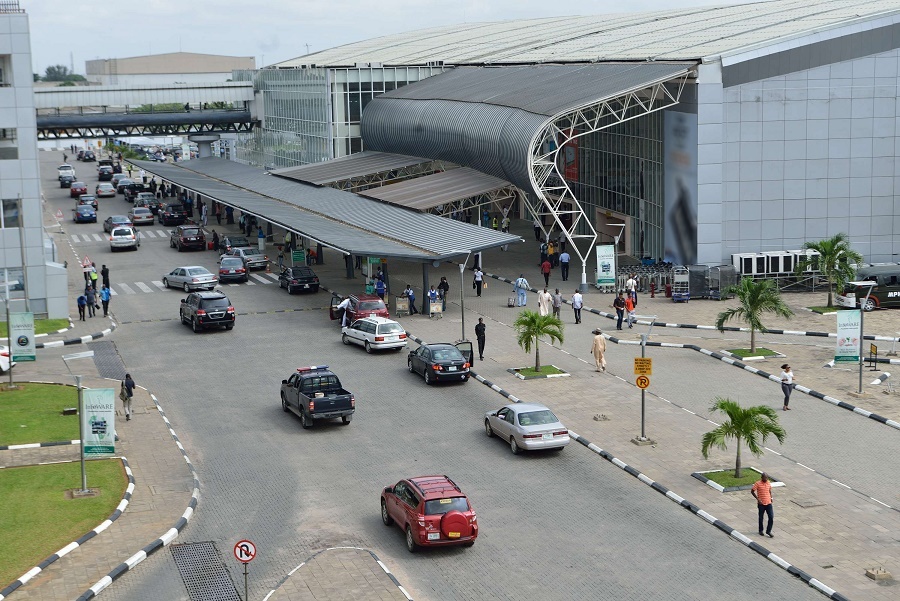
Industry experts in this report discuss the best model of concession for Nigeria.
The federal government has decided to concession the terminal facilities at four major airports in the country, despite the misgivings and protests by labour.
The airports include the Murtala Muhammed International Airport (MMIA), Lagos, the Nnamdi Azikiwe International Airport, Abuja, the Aminu Kano International Airport, Kano and the Port Harcourt International Airport, Omagwa.
PPP
The federal government has also concluded that it would concession the airports under the public, private partnership (PPP), where the investor would manage the facility for some years after which it reverts to the state.
World Bank Group’s PPP Legal Resource Centre has identified different types of Private, Public Partnership, which include one, utility restructuring, corporatisation and decentralization; two, civil works and service contracts; three, management and operating agreements; four, leases/affermage; five, concession, build-operate-operate-transfer (BOT), design-build-operate (DBO); six, joint ventures and partial divestiture of public assets; seven, full divestiture and eight, contract plans and performance contracts.
The International Civil Aviation Organisation (ICAO) also listed factors to be considered when giving airports in concession, noting that as the Article 28 of the Chicago Convention gives states the responsibility of making available airports and navigation facilities within their territory for the provision of public services to air transport users.
ICAO monitored the first concessions in Latin America and came to the conclusion that concession in Latin America resulted in significant benefits for the states in terms of infrastructure, services, regulatory application and employment.
ICAO also noted that in a different way, concession has also had an impact on the cost of airport services and recognised that the concession process is of great help for the prompt solution of problems concerning the lack and obsolescence of infrastructure and the quality of service, which demands large investments that, in many cases, cannot be afforded by the states.
ICAO, however, stated that certain criteria needed to be adopted so that the amount of the investment would be consistent with the expected growth of air transport demand.
These include that the airports must optimise their various services and, especially those given in concession. They should also seek reasonable profits based on a commercial approach to the airport business, balancing facilitation and user security, and offering comfort and different services to all their users.
But states must have, “the unrenounceable responsibility of ensuring compliance with the standards and recommended practices applicable to public services at airports, without detriment to that stipulated in concession contracts.”
ICAO considered that concession processes, whatever the scope of the functions assumed by concessionaires, must guarantee that both aeronautical and non-aeronautical services are provided more efficiently at said airport and also observed, “according to Article 15 of the Chicago Convention, any airport that is open to public use in a state must offer equal conditions to aircraft of all states in terms of the charges levied for the use of the airport and air navigation facilities.”
It added that the abuse of monopolistic positions should be avoided both in airport concession and airport management processes.
The MMA2 Example
When the old domestic terminal at the Lagos airport got burnt and the Chief Olusegun Obasanjo administration decided that the private sector would develop and manage a new airport terminal, not few were apprehensive about the government’s decision because Nigerians were used to having government run airports facilities.
It was that policy that gave birth to the domestic terminal (MMA2) built by Bi-Courtney Aviation Services Limited (BASL) under the PPP’s build-operate-transfer arrangement.

Since the terminal was built and became operational in 2007, it has remained the best-managed airport terminal in Nigeria, according to industry observers.
In fact, a senior official of the Federal Airports Authority of Nigeria (FAAN) recently told THISDAY that unnecessary bottlenecks and bureaucracy have made it almost impossible for airport terminals managed by the agency to work efficiently like the MMA2 managed by BASL.
THISDAY investigations also revealed that the efficiency in the way the terminal is being managed attracted even airlines that have their operational base at the General Aviation Terminal (GAT), known as domestic airport terminal 1 (MMA1) and they routed some of their flights from MMA2.
Spokesman of one of the airlines that started operating at MMA2 since 2008, told THISDAY that the terminal management is bereft of the encumbrances that bedevil the operator of other airport facilities because it is private sector driven; it is business oriented and has defined standard of operation without interferences.
“There are a lot of things we enjoy at that terminal which we don’t hope to have in the other terminals we operate in. MMA2 ambience is cool, naturally it’s inviting. There has been uninterrupted power supply for over a decade.
“This is as a result of deliberate effort to deliver. The facility upgrade is done as at when due. They have well laid out plan to keep the facility in top shape. It’s a systemic arrangement. They also have modern training centre with top facilities.
“The centre was certified by the regulatory agency, the Nigerian Civil Aviation Authority (NCAA). It is now being used even by other concessionaires, businesses around the airport for regulated training. No need to incur unnecessary foreign exchange especially with IATA, ICAO-backed training sessions,” the airline official said.
On the coronavirus pandemic prevention protocols, a BASL official told THISDAY, “Our COVID19 safety protocols were top notch. We continue to attract new airlines (with some coming on board soon). Our non-aeronautical section is doing superbly well. Despite COVID-19 challenges, we haven’t retrenched; instead values have been added to our staff; their welfare remains top priority. Our customer service is pleasantly amazing.
“We have history of lost and found items – these are usually returned to the owners. Services at the terminal are seamless; nothing like middlemen interference here and there. Most airlines have testified to this, particularly with their experiences elsewhere. Our customer-facing staff is courteous, always willing to help. This is also a systemic thing.”
Mind Shift
Industry consultant and CEO of Belujane Konsult, Chris Aligbe told THISDAY that the decision to concession the domestic terminal to BASL was, “the best mind shift” by government and expressed the hope that the problem in the agreement that dogged the concession over the years would be resolved.
Aligbe said despite the controversy that beset the concession, MMA2 remains the best-managed airport terminal in Nigeria, adding, “The terminal signposts what a concession can do. I will not stop in supporting the concession of airport facilities, but it should be transparent.
“This concession of MMA2 helped us because it showed that (Build-Operate-Transfer (BOT) can work. When there is nothing on the ground you will have BOT. you can have another kind of agreement when there are already existing facilities.
“We need new airport with new design, which meets ICAO standard, whereby in-bound and out-bound passengers move at different levels and do not meet. So there should be two-level structures.”
Aligbe said MMA2 has confirmed that airport concession in Nigeria can work so it should be embraced and noted that concession can drive modernity at Nigeria’s airports, remarking that Nigeria is yet to see the best airport facilities, which would be enabled by airport concession.
“But we need competences in every field of aviation. If we have local competences we go for it; whatever we don’t have we employ it from outside. Nigerians learn very fast. We can easily adopt what we don’t have because we are good learners,” he said.
Chairman of Bi-Courtney Aviation Services Limited, Dr. Wale Babalakin, recently spoke about his experience as concessionaire during a webinar organised by Aviation Round Table (ART) and made recommendations on how concession of airport facilities could work in Nigeria.
Babalakin said, “When I hear about concession, all I say is that please follow the law only so that you are not exposed to phenomenal damages, especially if some of the bidders come from outside.
“I doubt if anybody who is coming from a very structured company will bid for any of those facilities because they will always ask for reference and they will be told that MMA2, though successful has been completely undermined, hindered by refusal to honour agreements.
“I also hope that when this concessioning takes place, there will be an independent body that will act as the regulator. The regulator cannot be a participant in the management of airports, it cannot. It is conflict of interest. You cannot be a judge in your own court.”
He explained the reason why there should be independent regulator that should oversee the management of the concessioned airport facilities.
“Recently, we were trying to increase our passenger tax; we have kept the same thing (charge) for about 10 years even with inflation and devaluation.
Fortunately for us, in our agreement with government we got approval from FAAN, from the Ministry on the bandwidth that we could charge.
“We have not exceeded that bandwidth, we wrote to NCAA, informing NCAA that we will go ahead to do this; we already have authority for it. And NCAA wrote back to us that we should seek the consent of FAAN.
“Why should we seek the consent of our competitor, on the same terrain who is not honouring his own side of the bargain? Why should we? We are not troublesome but this is a matter that we could all go to court and resolve in a month.
“We are not troublesome, we just want to operate in our own sphere, give hope to Nigerians that it is possible to invest in infrastructure in Nigeria and have appropriate returns,” Babalakin said.
He, however, expressed happiness that the federal government decided that it wants proper concessioning process, noting that once this concession is signed it is more important that government sticks to the rules of the game.
Capacity
Speaking on the need to urgently concession major airports in the country, the Group Managing Director, Finchglow Group and former President of the National Association of Nigeria Travel Agencies (NANTA), Mr. Bankole Bernard said the time to concession the airports is now.

“According to the International Air Transport Association (IATA), there are predictions that developing countries including Nigeria will see a surge in air transport in the next 15 – 20 years.
“However, with this predicted growth in air transport, many of these countries, including Nigeria do not have the facility to manage this traffic. This situation perfectly describes Nigeria.
“With the country’s situation of having limited resources to expand its airports, the best option in view is the concession of our airports as rightly raised by the Minister of Aviation, Sen. Hadi Sirika,” he said.
Bernard said the National Bureau of Statistics reported that in 2018, Nigeria’s air passenger traffic inched up by 3 per cent with a total number of 14.82 million travellers, as against 14.26 million in 2017. In 2019, the passenger traffic in the first half of the year hit 8.48million compared to 7.56million in 2018. With passenger traffic growing at that pace, “even though we have seen some setback due to the COVID-19, air transport will soon rebound and the expansion of our airports should be a focus area.”
From the standpoint of industry stakeholders, concession can work in Nigeria because BASL has successfully operated airport terminal under concession arrangement; this has given fillip for further campaign to concession more airport facilities.






